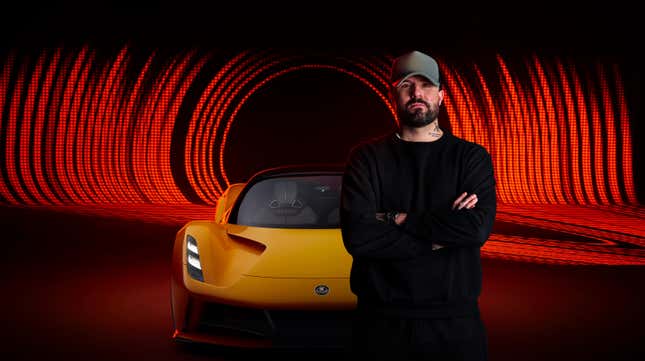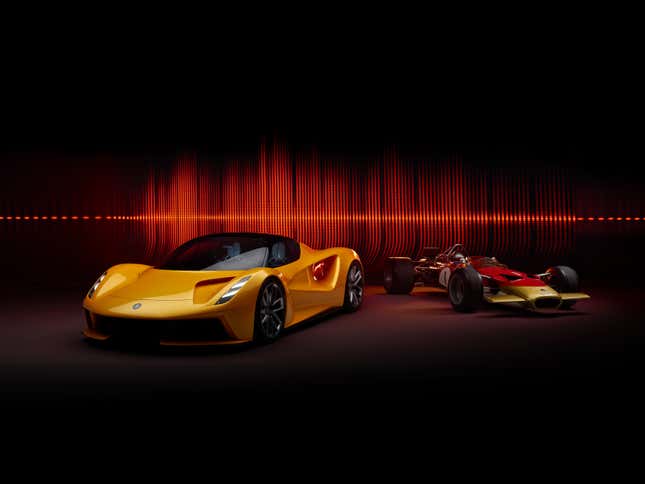
One thing I will miss going into this EV future is the sound of a combustion engine. There’s nothing quite like the roar of a V8 or the woosh of a turbo or the scream of a V10.
Unfortunately, EVs don’t really make much sound when driving. The Department of Transportation outlined rules in 2018 requiring electric cars (and hybrids) to make sounds at low speeds to alert pedestrians of their approach. This came about as reports of traffic incidents occuring due to pedestrians not hearing the approaching vehicles. So automakers have been developing sounds for them. Lotus is hoping its work with music producer Patrick Patrikios will produce a whole range of sounds for its coming electric hypercar, the Evija.
Artificial engine sound isn’t something new. It has been a thing for years in vehicles such as the Lexus LFA, VW GTI, Ford Focus ST and various BMWs. (BMW calls it Active Sound.) Engine sound is piped in through the vehicle’s speakers to “enhance” the aural environment. Sometimes it works. With EVs, though, that artificial sound can be taken to a whole different level as there is no engine to back up the artificial sound. All of the sound is artificial.

The starting point for the work of Patrikios was the legendary Lotus 49. If you’re unfamiliar with the 49, it was a Cosworth-powered F1 car designed by Lotus founder Colin Chapman. It raced in the 1967 F1 season, all the while making this glorious sound:
The 49 was chosen because of its importance to the Lotus brand. As Patrikios explained:
We wanted to create a soundscape for the Evija that was recognizably and distinctively Lotus. I sat with the development team at Hethel and discussed what that should be. We wanted something intrinsically connected to Lotus, so we could set an audio blueprint for its future electric cars.
While working to perfect the sound for the Evija’s “engine,” Patrikios and Lotus noticed that the sound of the 49’s engine slowed down was similar to the electric noise the Evija’s motor makes. So when accelerating, the Evija will use the sound of a 49 running from zero up to 186 mph. Patrikios didn’t just make the engine noise for the Evija. He’s also created every tone the car will make, from seatbelt indicators to door chimes. With the future of Lotus being electric, and with its impressive racing and road car history to pull from, maybe artificial sounds won’t be so bad after all.